by Omar al-Jaffal and Safaa Khalaf
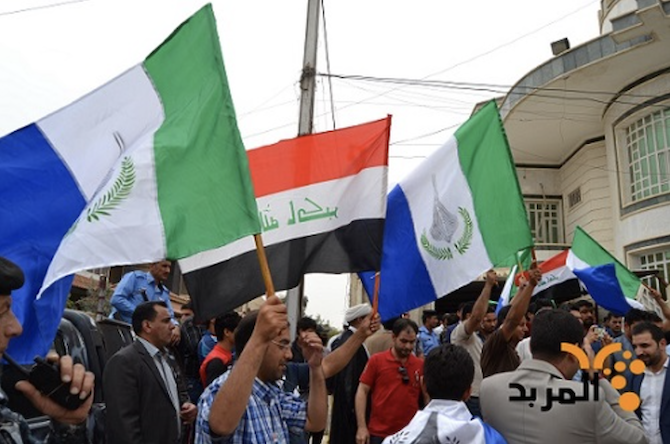
From the formation of the modern Iraqi state until today, the wrath of Basra’s residents about the deteriorating situation of the governorate has translated into two trends: the dream of establishing a state or a region, and the attempt to establish a decentralised local government to manage the economy and improve the condition of the city. The recurrent protests that have intensified over the last couple of years invoked Basra’s desire to become a state or a region, showing the importance this demand holds for the population’s perception of local governance and its direct benefit in improving services, security and investment.
Historically, Basra was one of the three most prominent Ottoman provinces in the Mesopotamian region, alongside the states of Baghdad and Mosul. Basra extended its influence as a province over large areas of the Persian Gulf that reached to the present-day state of Bahrain. After the collapse of the Turkish Empire, Britain took control of all of Iraq through the occupation of Basra in 1914, but despite the post-war ‘mandate’ assigned to them by the League of Nations it was obvious that it would not be handed to its indigenous inhabitants. Following the imposition of the British mandate on the parts declared a state in Iraq, the notables, dignitaries and sheikhs of Basra were aspiring to separate Basra from Iraq and declare it a state or a kingdom, or failing this for Britain to choose an Iraqi king from among the Basrawi families. But the British response to this early rebellion was to suppress these ambitions militarily by bombing the houses of the notable protestors and exiling them. In 1928, the Basra elites repeated the attempt to obtain the right to establish a region with broad powers within the State of Iraq. This time, the elites enjoyed popular support, driven by the poor service provision in the province. But the efforts of the elites and the population failed again because the authorities in Baghdad rejected these demands.
From the monarchy in Iraq in the 1920s to the fall of Saddam Hussein’s regime in 2003, Basra’s political conditions did not allow for secession, nor for the establishment of a pattern of self-governance or for any notable to take over. All the regimes that successively governed Iraq were highly centralised, despite adopting constitutions that implicitly mentioned the possibility of implementing decentralised administration – such as the Interim Constitution of 1970 and 1991’s draft constitution of the Republic of Iraq. This was also due to the wars in which Basra’s territory was the main theatre: the eight-year war with Iran (1980–8), the second Gulf war (1990–1) and the US invasion of Iraq in 2003. Basra and its residents forgot their dreams of secession or autonomy with broad powers, relegating it to a spectre from the past.
However, the formation of the new political system after the US invasion awakened the dream once again with the transformation of Basra into a region, albeit sometimes not in the hands of notables or political dignitaries originating from Basra. The adoption of a federal system was launched by the powers forming the new state structure after 2003, and the conversion of any governorate into a region in the Iraqi constitution. For years, discussions were taking place between Baghdad, Basra and southern cities to implement the transition to ‘Southern federalism’, by benefiting from the experience of the Kurdistan region.
The year 2008 witnessed Basra’s first practical efforts to become a region through legal steps pushed by its former governor, Wael Abdel Latif, with the support of the Islamic Virtue Party (Hizb al-Fadila al-Islami), which was controlling the governorate council. But the referendum was unsuccessful as the vote in favour was less than the super-majority required, while those advocating for the region accused the Independent High Electoral Commission of blocking access to the referendum by impeding voters’ ability to reach the polling stations.
The Basrawis felt that they were facing a strong rejectionist force in Baghdad, determined to prevent the establishment of a region with the source of Iraq’s oil. Baghdad fears any form of Basra’s escape from central government control, given the serious threat posed to Iraq’s finances that are dependent on Basra’s oil and its ports, from where Iraq exports the crude extracted from its territory.
Despite this growing rejection, the Basrawis attempted again in 2010, when 16 members of the Basra Governorate Council submitted a request to the Council of Ministers to conduct a popular referendum as the first stage in establishing the Basra region. But former Prime Minister Nuri al-Maliki ignored their request and they received no official response. With the emergence of demands to divide and split Basra into two governorates or more, the call for establishing a region was repeated again in 2011, but this time it was nothing more than an attempt at political exploitation and points-scoring among conflicting parties inside Basra.
In late 2014, the ‘Popular Campaign for the Formation of the Basra Region’ was launched, and after several months it succeeded in receiving an official response, after submitting again a demand to the High Electoral Commission for a referendum that would allow Basra to become a region. The new campaign appeared more organised and popular with a supportive youth movement on the ground and on social media, and the ‘Basra Region Flag’ appeared for the first time.
But again, the federal government refused to respond to the referendum request, taking advantage of the political and popular division locally and federally between opponents of the transition to a region and its supporters through the passage of the ‘Basra, Economic Capital of Iraq’ law, which was received favourably, in some respects, by the population. Therefore, calls to transform Basra into a region during that period softened and eventually retreated due to the escalation between Baghdad and the Kurdistan region as a result of the latter’s decision to hold a secession referendum.
With the beginning of the protests in July 2018, the Basra Government Council submitted a direct request to establish a region. A year later, it decided in a special session to transform the governorate into a region, aiming to hold a referendum later in the same year, to overcome the state of frustration and despair left by the wave of protests in Basra and the failure to fulfil the demands of the demonstrators who were met with a government crackdown. This measure was seen as aimed at ‘venting’ the anger of the protesters to express discontent with the federal government and to regain the residents’ trust, by announcing a more firmly supportive stance for the establishment of the region and vowing to ‘imprison the officials in Baghdad, if they continue to ignore the demand to establish the region in the south’.
However, the council’s announcement was quickly rejected by a broad spectrum of political and religious parties warning of the dangers of forming regions, with the leader of the Sadrist movement, Muqtada Al-Sadr, denouncing it as ‘a means to steal and to further corruption’. Former Prime Minister Iyad Allawi also claimed that there was ‘poor planning and management and waste of money [in Basra] that the transition to a region cannot resolve’. The political office of the ‘Asa’ib Ahl al-Haq militia charged that ‘the demand is backed by international intelligence agencies’, according to one of its members. Despite this criticism, the Basra Council did not retreat, petitioning the government of Adel Abdul-Mahdi to hold the referendum. However, Baghdad was mired in more complex problems.
In 2019, the Abdul-Mahdi government suppressed the movement aiming at transforming Basra into a region, not only by confirming its rejection once again, but also by granting the local government and the governorate council in Basra a very large budget in order to induce them to forget the idea of a region and end the campaign completely. During the mass protests in the summer of 2020, there were still voices calling for the region’s establishment, but they appeared less influential than before, in addition to not being legally supported after the Federal Parliament’s decision to dissolve the provincial councils.
As for public opinion in Basra, the idea of establishing the region is still very popular, as reflected in the results of the survey that we carried out in 2019, as part of our research project ‘A Locality in Crisis: A study of the local governance crisis and public protests in Basra’. 43 percent of respondents considered turning Basra into a region along the Kurdistan model optimal, while 37 percent thought it better for Basra to have decentralised administrative governance with broader powers, without moves towards forming a region. The idea of joining a region with the other southern provinces garnered six percent approval, as did support for secession from Iraq and establishing an independent state.
Given the population’s dissatisfaction with Basra’s status as a liveable city and the uncertainty surrounding its future, it appears that the results of the survey reflect largely how the population see the advantages of regional governance – as a system that would enable them to resolve the accumulated service crises, chief among them neglected basic services.
The most prominent reflection of these results may be that what the population mostly lacks is adequate representation at a local level and an administration that enables it to run its affairs and its localities. In spite of the huge budget obtained by the local authority departments last year, the question remains whether the issue of proper management and adequate representation that the population demands will be solved through the budgets alone, or if the system and structure of local governance in Iraq is to remain the central obstacle to its progress.
هذا المقال متوفر باللغة العربية هنا



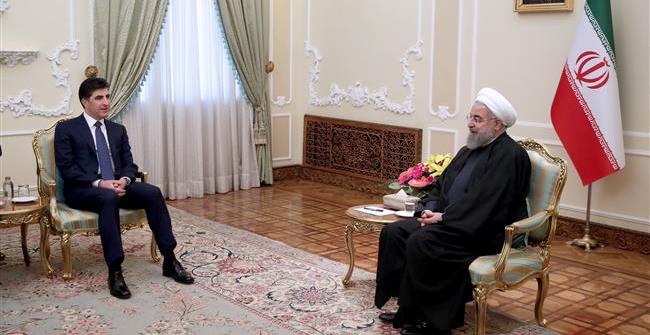
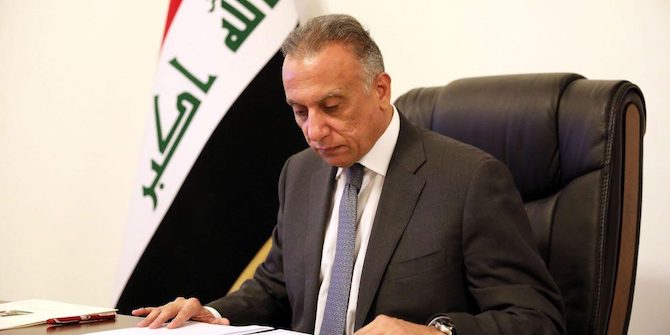
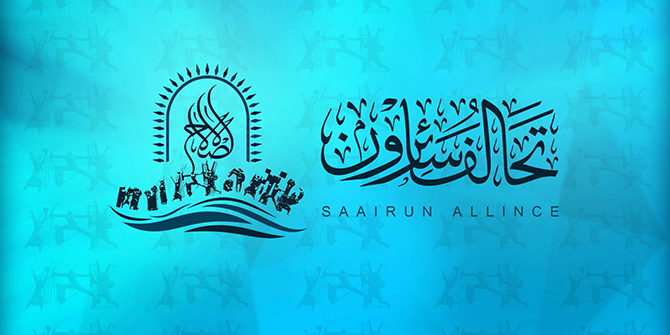
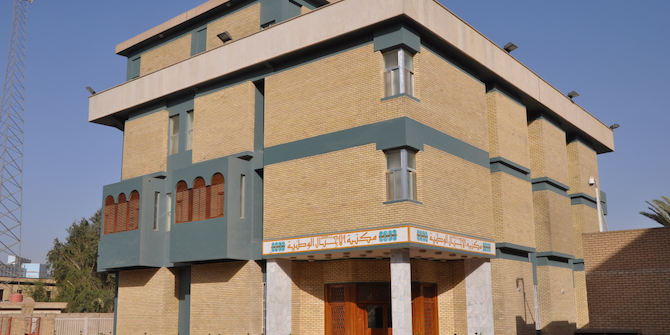
4 Comments